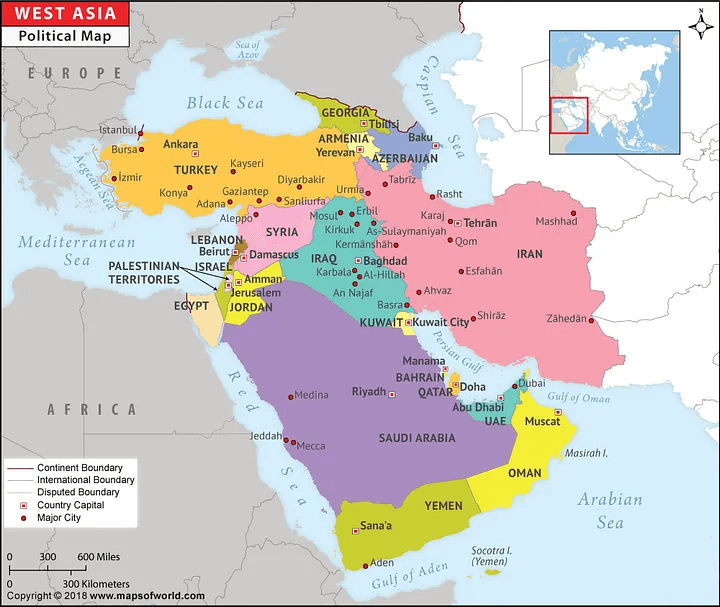The Hindu Analysis
Video
Read Analysis


Headlines
-
The shape of climate justice in a warming India - Page
No.10, GS 3
-
An opportunity to recast India's food system - Page No.10 ,
GS 3
-
Are southern States being punished for their success?- Page
No.11, GS1,2
-
Centre says measures in place to check price rise- Page
No.16, GS 3
-
'China to work with Egypt to help stabilise West Asia'-
Page No.17, GS 2
The shape of climate justice in a warming India - Page No.10, GS 3

- The G-20 summit that was held in Delhi (September 9-10) agreed on tripling
renewable energy capacity and a voluntary doubling of the rate of energy
efficiency improvement by 2030.
- However, this Delhi Declaration on the climate question did not find consensus
on the most contentious issue, which is the root cause of the climate crisis —
of the phasing out of fossil fuels.
- Any energy transition initiative must embrace two normative ideals: first,
internalising cost requires those who emit greenhouse gases to pay the social
and environmental costs. Second, climate justice requires compensation
for those who are harmed.
- Often, those who contribute to climate change are not the ones who are affected
by it.
- The climate-induced problems and droughts have compounded the agrarian crisis
and allied economic activities. Variations in rainfall, temperature and extreme
climate events directly impact agricultural productivity,
compounding farmers' income loss. Rising temperature in the ocean ecosystem has
already begun squeezing fish stocks in parts of the country, hurting fishing
communities.
- While the relationship between inequality and carbon emissions is complex, it is
clear that addressing both environmental and socio- economic inequalities
simultaneously is essential for sustainable and equitable development.
- Regions heavily reliant on coal production may lose revenues and livelihoods.
An opportunity to recast India's food system - Page No.10 , GS 3

- World Food Day (October 16)
- On the nutrition front, India faces a double burden of malnutrition. At one end,
despite making great progress over the years, a sizable proportion of Indians
exhibit nutrient deficiencies. As in the National Family
Health Survey, 2019-21, 35% of children are stunted, and 57% of women and 25%of
men are anaemic. At the other end, due to imbalanced diets and sedentary
lifestyles, 24% of adult women and 23% of adult men are now
obese.
- On the production side, farm incomes are insufficient to meet the ends of
marginal and small farmers. According to a report by the Transforming Rural
India Foundation, more than 68% of marginal farmers supplement their
incomes with non-farm activities.
- Further, depleting natural resources and changing climate are making India's
food production highly vulnerable.
- First, consumer demand needs to be shifted towards healthy and sustainable
diets. We need to shift to a food plate that is healthier for people and the
planet.
- Second, to ensure resilient incomes, we must support farmers' transition towards
remunerative and regenerative agricultural practices.
- A critical approach to enhance rural (farm) incomes is to enable more value
addition of agricultural produce in rural areas.
Are southern States being punished for their success?- Page No.11,
GS1,2

- The Finance Commission decides not only on how much should be devoted from the
Centre to the States, but also on distribution of these proceeds among the
States.
- One, the State's share in the total population; and two, the income distance
ratio, that is, how far the State's per capita income is higher or lower than
the national average.
- The weightage given to the population in determining the share of States has
come down from 27.5% in the 14th Finance Commission to 15% in the 15th Finance
Commission.
- Article 81 of the Constitution says that each State should have seats in
proportion to the population and that constituencies should roughly have the
same population.
Centre says measures in place to check price rise- Page No.16, GS 3

- Union Food Secretary Sanjeev Chopra said here on Thursday that the Centre had
taken adequate measures, including extension of restrictions on exports of
sugar, wheat, and rice, to ensure that the prices of these essential
items did not increase further and remained stable during the festival season.
- On wheat, he said the Centre had decided to offload 50 lakh tonnes under the
Open Market Sale Scheme (domestic) through e-auction.
- FCI sells surplus stocks of wheat and rice at predetermined prices through
e-auction in the open market from time to time to enhance the supply of food
grains.
- The purpose of OMSS is to dispose of surplus stocks of wheat and rice held by
FCI, and to regulate the prices of wheat in the open market.
'China to work with Egypt to help stabilise West Asia'- Page No.17,
GS 2


- Chinese President Xi Jinping told Egypt's Prime Minister on Thursday that their
countries should work together to bring "more stability" to West Asia, as the
Israel-Hamas war casts a shadow over the region.
- two-state solution







